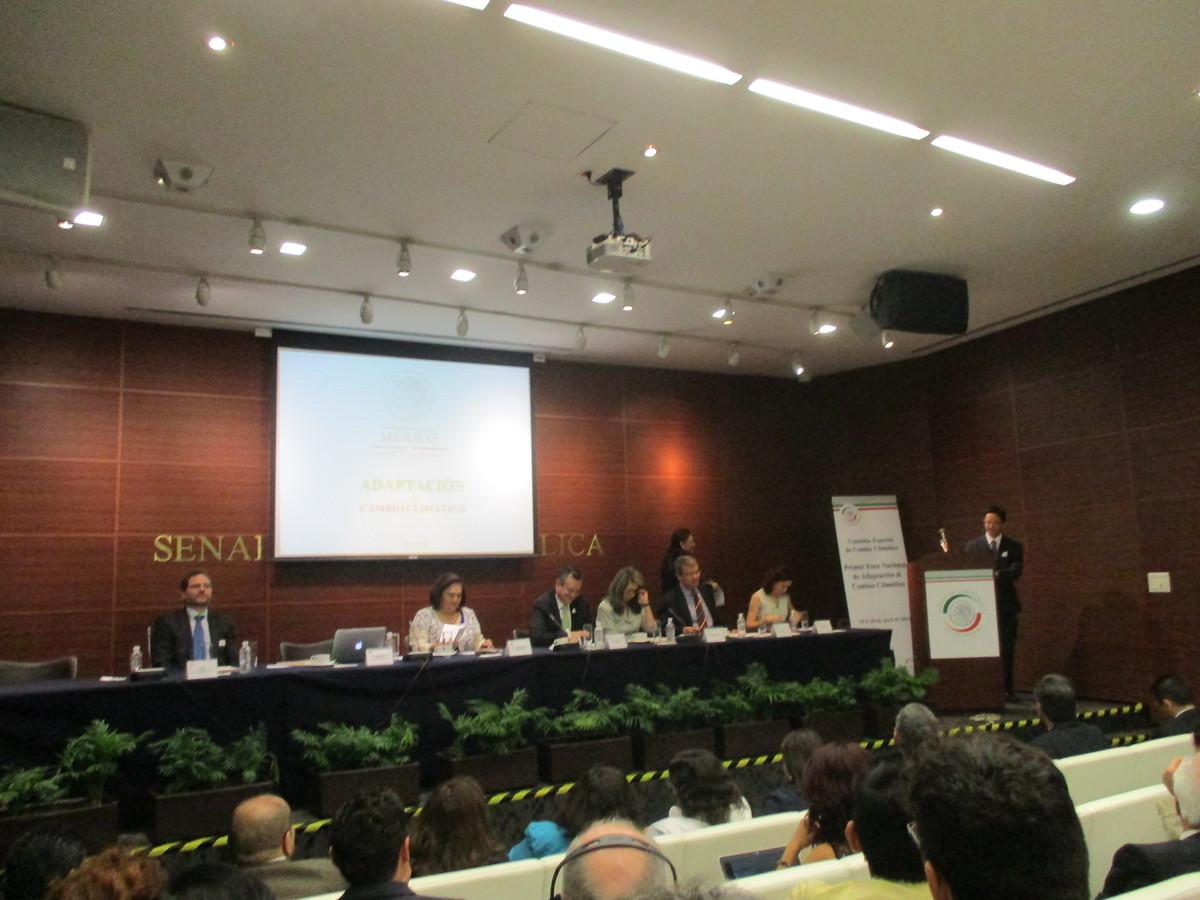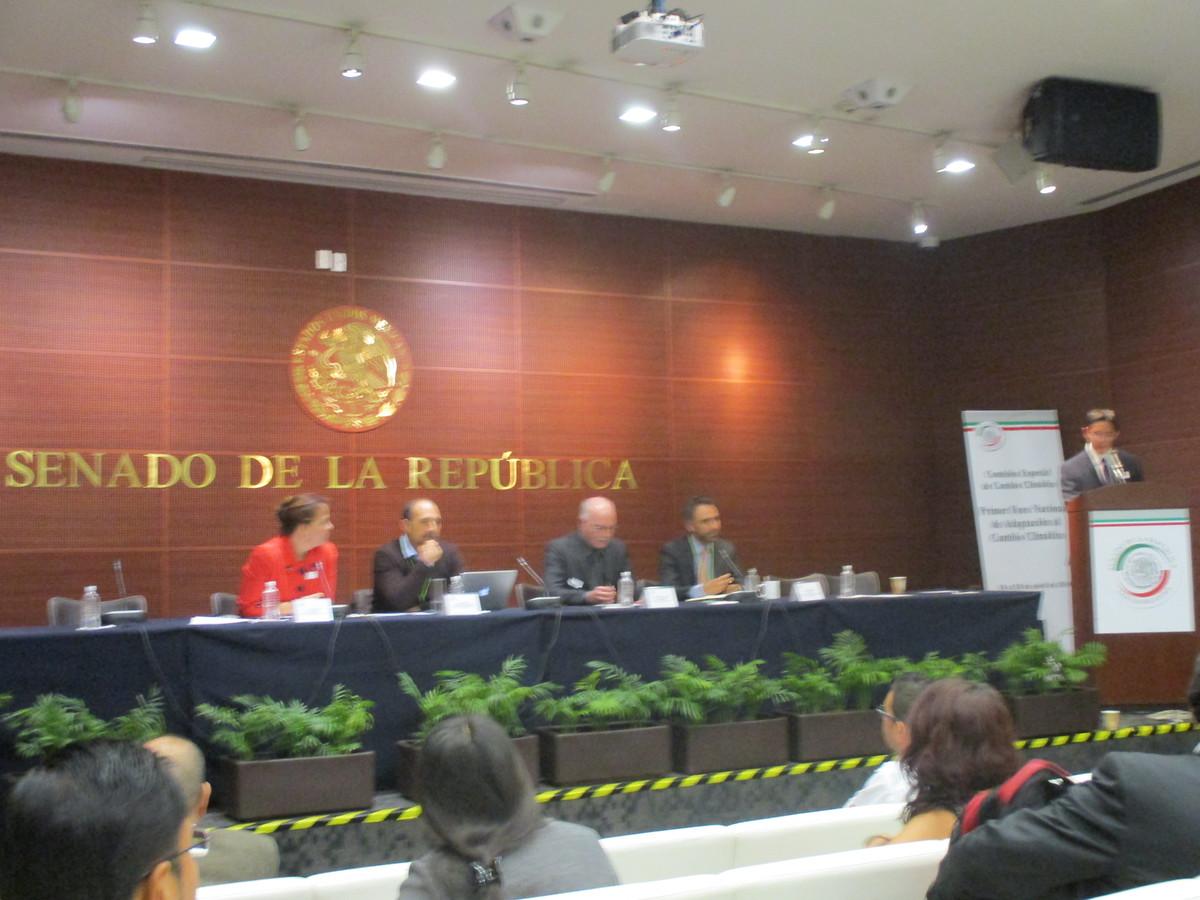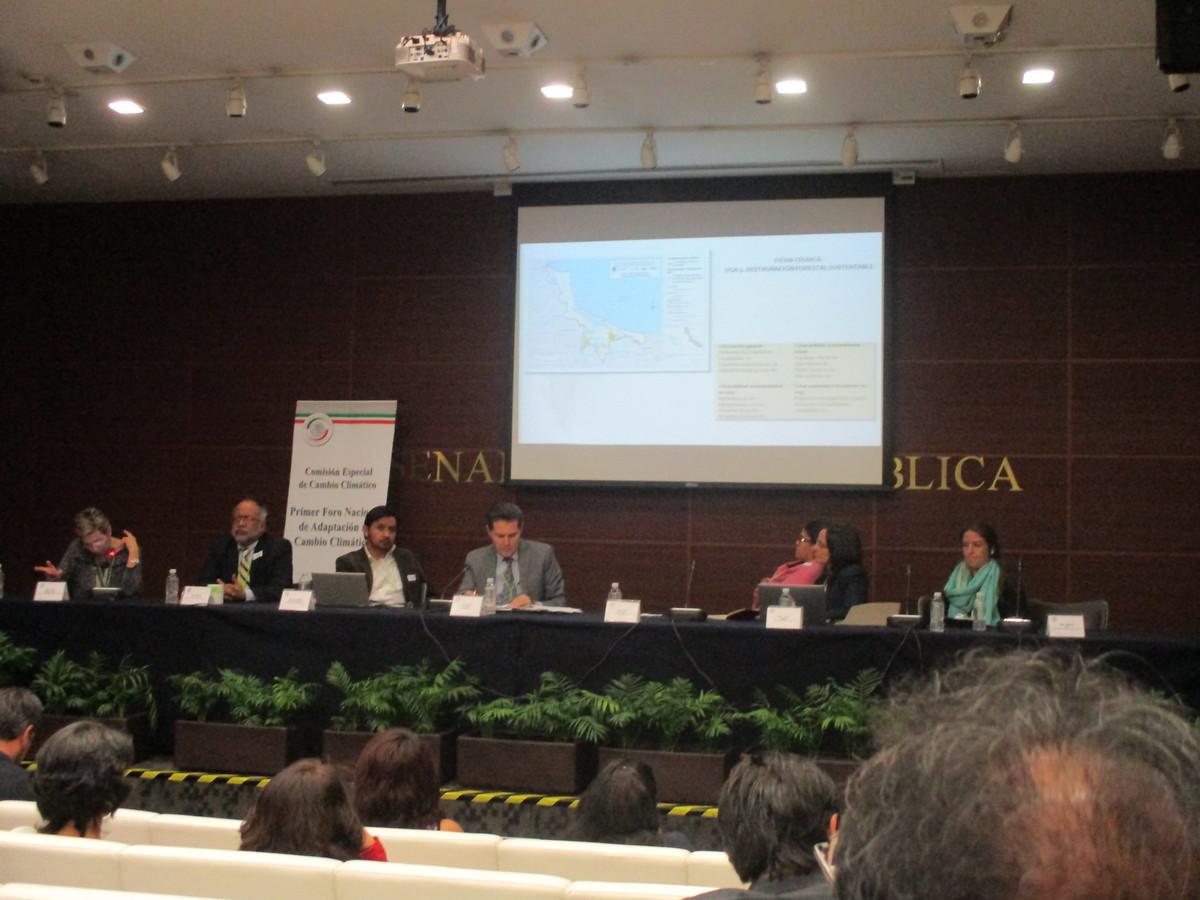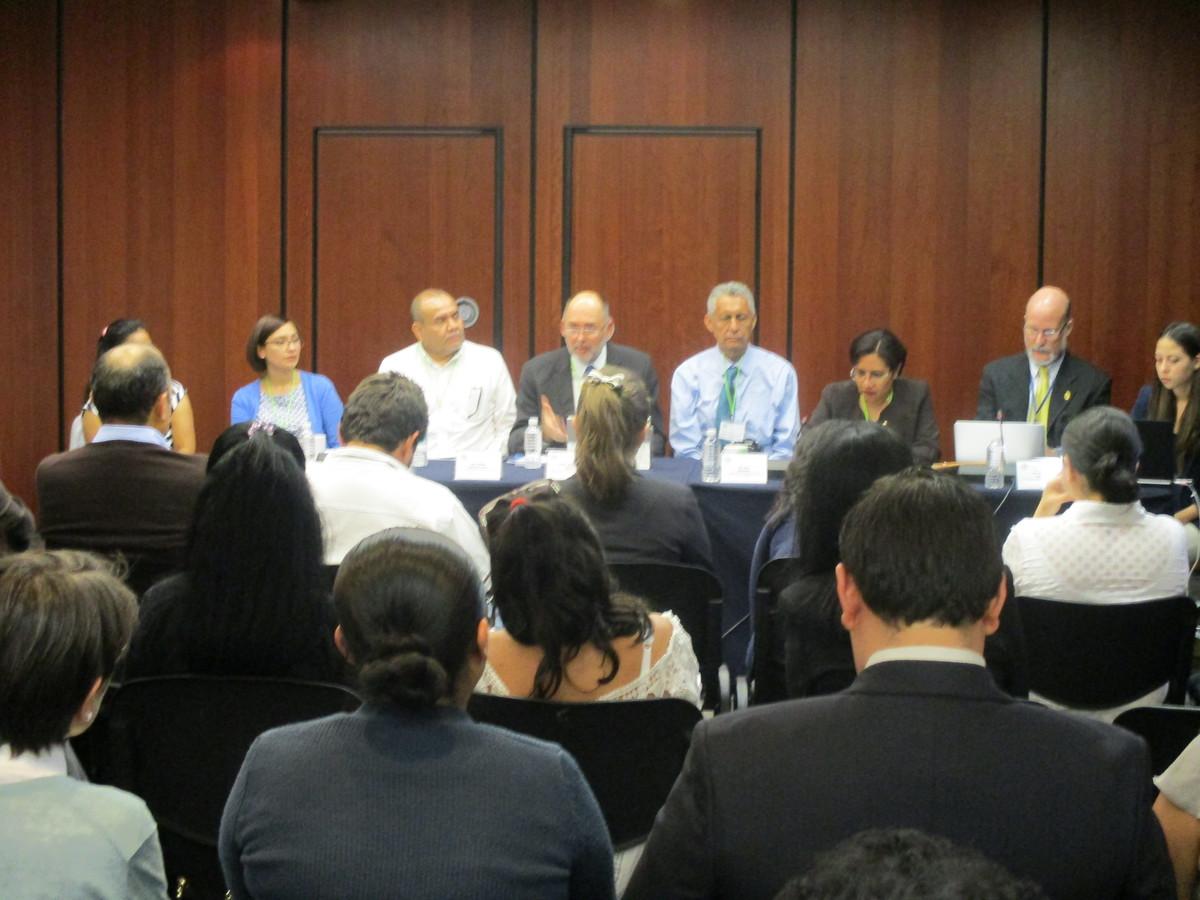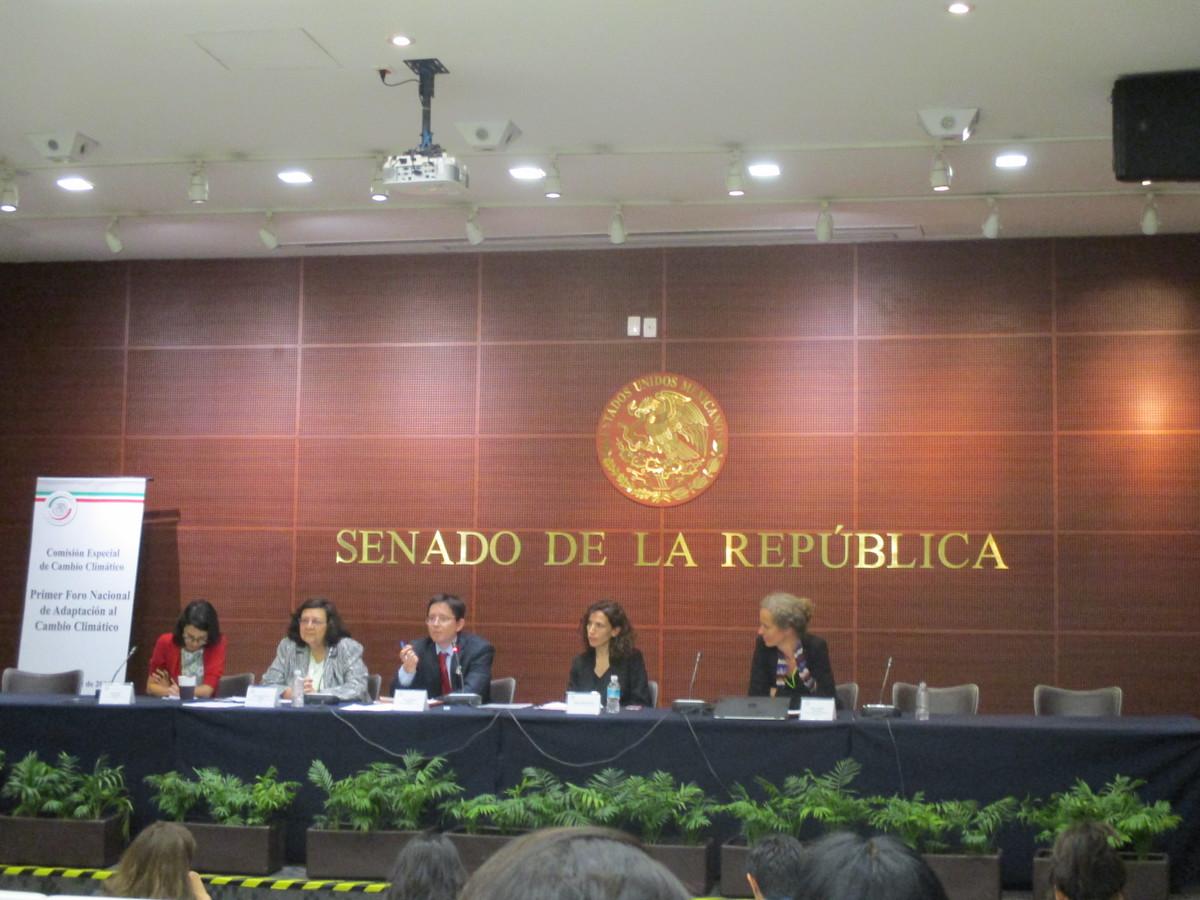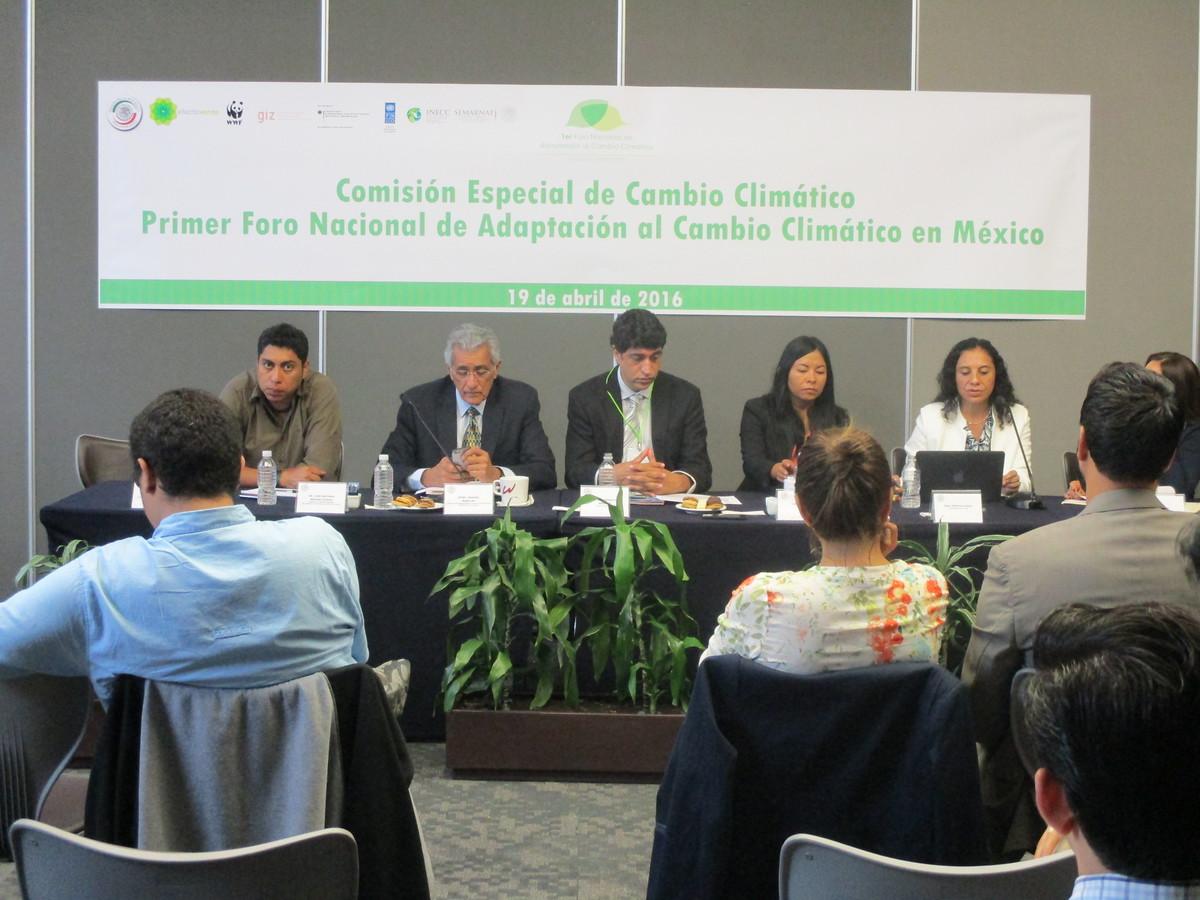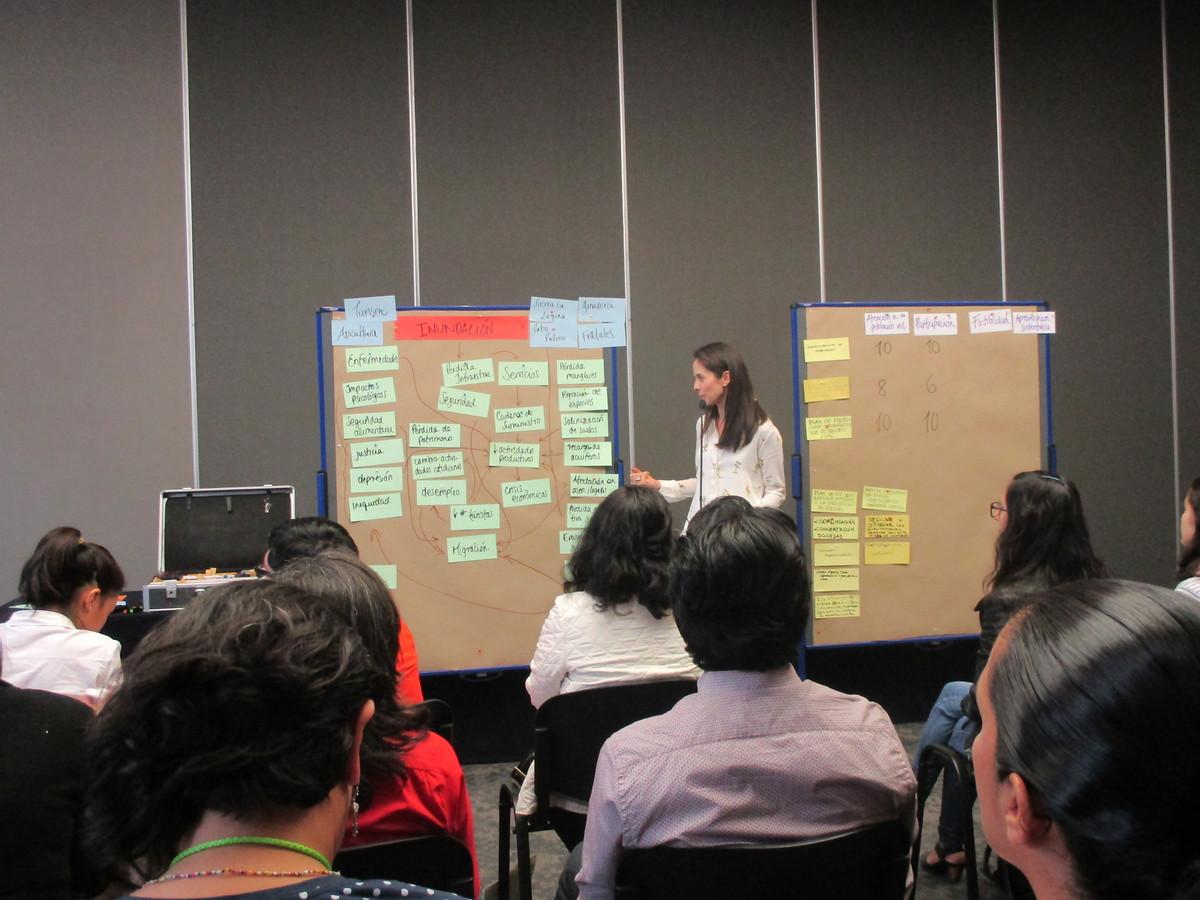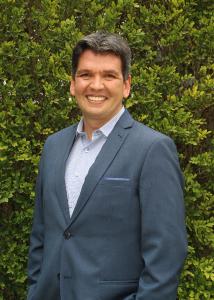Event reports
The Forum, although was focused on the complexity of the processes of Adaptation to the Climate Change in the host country, also had representatives and voices in the discussions from many places of Latin America, because we live in a “divided but ecologically interdependent world” (UNDP, 2016), discussions that enriched the plenary sessions, tables and workshops in parallel, addressing the Adaptation to the climate change from social, economic, academic and of course, environmental perspectives and policies. At the end of the 3 days of the Forum, it was evident that the Adaptation to the Climate Change is not only the other side of the coin along with the Mitigation, but also that in Latin America it becomes important because there are countries that due to their diversity of ecosystems, biological richness, multiculturalism and problems in the political structures and of economic and social development are the most affected; thus, From the world agreements of COP 21, recently ratified in New York, it becomes really important with respect to Climate Change, as mentioned by Dr. Conde of INECC who presented a guiding thought that should be included in the public and private agenda, and in civil actions in Latin America: "If you mitigate tell me how you adapt, if you adapt tell me how you mitigate" because it is crucial to reinforce the sense of urgency in the public debate, avoid "Inaction in case of prediction and prevent the inevitable" as mentioned by Senator Silvia Garza, inaction that can cause a loss of 1% or 2% (average) of annual GDP in the countries of the region.
The disclosure mechanisms should be improved, seeking common and collective definitions of quick understanding, creating communication networks with accurate and concise information, avoiding advertising clichés and promoting scientific research of quality, objective and independent in order that consciousness and awareness occurs at all levels, from decision makers (issue sectorial policies, integrate them transversally and reduce distances between regulations and action) with a "politically relevant science and a scientifically grounded policy” as stated by Amparo Martínez from the INECC, involving the private sector as an engine for sustainable development and decent work, to communities, giving priority to those with less capacity to adapt (areas of multidimensional poverty, rural sector) and that are coincidentally more vulnerable to the effects of the climate change, focusing investments without forgetting the gender approach and recognizing cultural differences, equating responsibilities and having the human welfare as the greatest goal. In turn, it could be concluded that the Adaptation to the Climate Change has 3 main development platforms, which are different in concept, but necessarily complementary to the results:
-Adaptation from ecosystems: Biological corridors instead of protected natural areas, strategies for biodiversity conservation, efficient land-use planning policies that safeguard balance in the use of resources; to work in the recovery of ecosystems damaged by disasters and prevent them with actions of lower negative environmental impact (reforestation in slopes, "water planting", bioremediation, wetland protection, etc.)
-Adaptation from risk management: Prospective rather than corrective, early warning systems, derive more funds to prevention rather than reconstruction, include costs of potential damages caused by disasters in the public and private investments, "anchor" adaptation in the land "because it is at local level where things happen”, as mentioned by Ricardo Mena from UNISDR.
-Adaptation from the communities: Participation with ancestral knowledge, insist on the change of harmful habits (human settlements in risk areas, excessive deforestation and grazing, etc.), environmental education that insists on the quick response to disasters and the capacity to generate resilience in the affected communities.
These platforms, in addition to integrate and complement, should be assessed in accurate analysis of qualitative and quantitative priorities, so that the economic, social and environmental feasibility determines toward where efforts for action will be focused, taking into account that the public budgets and international cooperation do not have “infinite resources” and also because there may be many proposals for adaptation measures, but not all are effective in their results regarding economic cost-benefit and impact on the natural and community environment.
Note: Soon, summaries of the event, exhibitions and images will be available in the official website of the event.



